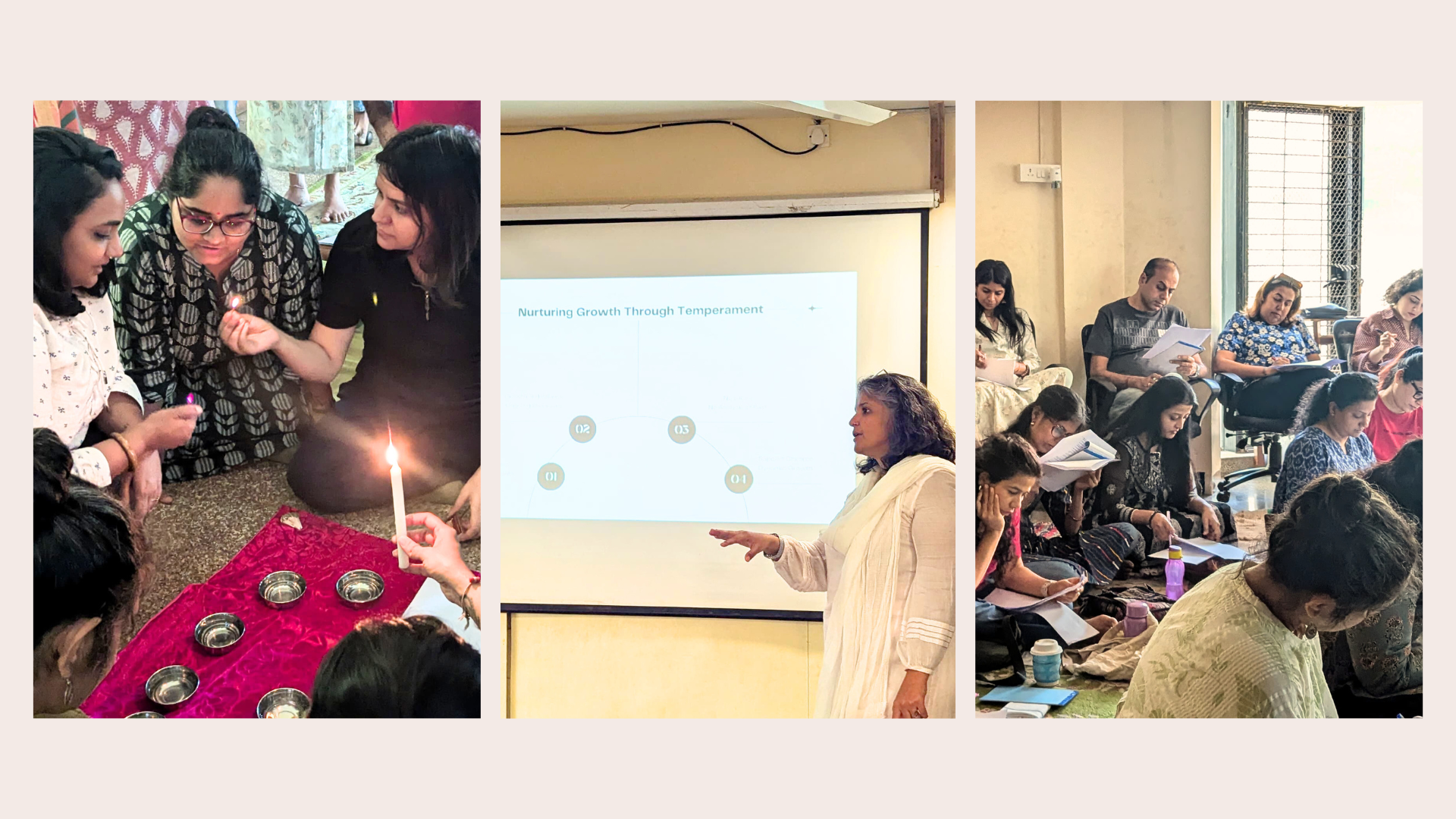In collaboration with Inodai Waldorf School
Parenting has never been easy, but in today’s fast-paced world, the gap between generations feels wider than ever. The question is no longer just how to parent, but how to truly understand and support children in a digitalised world that is constantly evolving.
In a recent experiential workshop at Inodai Waldorf School, I had the opportunity to work with parents on deepening this understanding – through the lens of Anthroposophy, founded by Rudolf Steiner, a spiritual science based on idealistic traditions, aiming to explore the spiritual world through intellectual inquiry similar to the development of modern science.
Sensing the Elements: A Brief Exploration
Temperament is the unique blend of qualities we carry, partly inherited from our ancestors and partly shaped by our inner self. It sits somewhere between the parts of us that feel timeless and the parts that shift with life. You could think of it as a personal rhythm we are born with, shaping how we respond to the world, relate to others, and move through our experiences.
Each element of nature (Air, Water, Fire, and Earth) carries qualities that reflect one of the four temperaments – Sanguine, Phlegmatic, Choleric, and Melancholic respectively. Parents experienced the physical elements sensorily – touching, observing, and interacting with each element. As they tuned into the nature of each element, they began to intuitively grasp the qualities behind each temperament.
Air moved through light, flowing fabrics that lifted with the smallest motion. It brought to mind the Sanguine temperament, which feels light-hearted, curious, and full of presence. Like air, it does not settle in one place for long but brings freshness and movement wherever it goes.
Water was poured into open bowls, cool and smooth to the touch. It moved slowly but steadily, offering a sense of quiet strength. This mirrored the Phlegmatic temperament, known for its calm, steady, and quietly resilient nature. Like water, it flows without force, adapting with ease.
Fire appeared in the flickering glow of candlelight, drawing attention and radiating warmth. It expressed the Choleric temperament, which feels bold, passionate, and full of purpose. Like fire, it carries the power to initiate change and energise what surrounds it.
Earth was felt through the weight of stones and the scent of soil. Its grounded presence created a sense of stillness and depth. This echoed the Melancholic temperament, which tends to be inwardly focused, sensitive, and deeply reflective.
Bridging Generations: Meeting Gen Z where they are
Parents reflected on their own and their children’s temperamental tendencies through guided questionnaires with questions such as how they handle stress, what they prefer in social settings, and how they respond to feedback. These prompts encouraged them to notice patterns in their own responses and begin recognising echoes or contrasts in their children.
This caused a shift in perspective from seeing behaviour as a problem to understanding it as a reflection, allowing many to step back from immediate judgments and automatic reactions. The conditioning and fixed ideas many carried began to soften. Instead of rushing to manage or fix, parents became more open to holding space with mindful curiosity. This led to a fresh approach to parenting rooted in a sense of shared humanity.
This became clearer as we turned to Generation Z – children growing up in a world of constant connectivity, digital stimulation, and social media. These influences shape how they relate, express emotions, and understand themselves. For parents raised in a slower, more grounded time, this often creates a quiet gap – screen time struggles, moments of disconnection, or feeling slightly out of step with their children’s world.
Rather than offering quick solutions, we explored the idea of a Parenting Sanctuary – a space to meet each child’s temperament with presence, curiosity, and flexibility.
For example :
When a child is emotionally charged (showing choleric intensity),
- A parent can respond with calmness and patience (using phlegmatic qualities like fluidity, softness, and patience).
- This helps to de-escalate the situation and bring a sense of calm to the moment.
Parenting, then, becomes an intuitive dance of balance, grounded in understanding, emotional resilience is imbibed and the space between the parent and child is nurtured where both can grow together.
If this resonates with you, and you feel such workshops could support your school, community, or parent circle, I invite you to reach out to me at namrataravindra1@gmail.com. These workshops are not about finding perfect parenting techniques – but about cultivating deeper awareness, trust, and connection in a rapidly changing world.
Together, we can create a Parenting Sanctuary where parents feel safe to pause, reflect, and grow.


